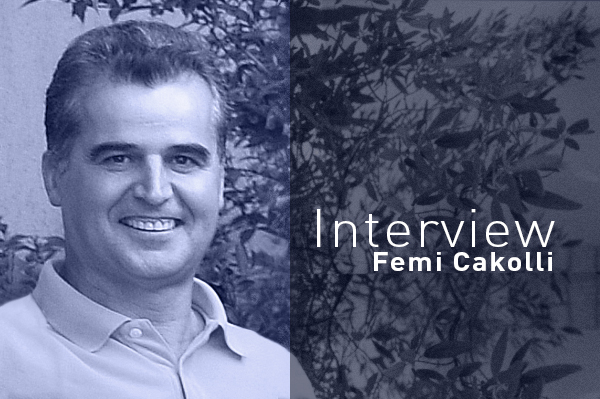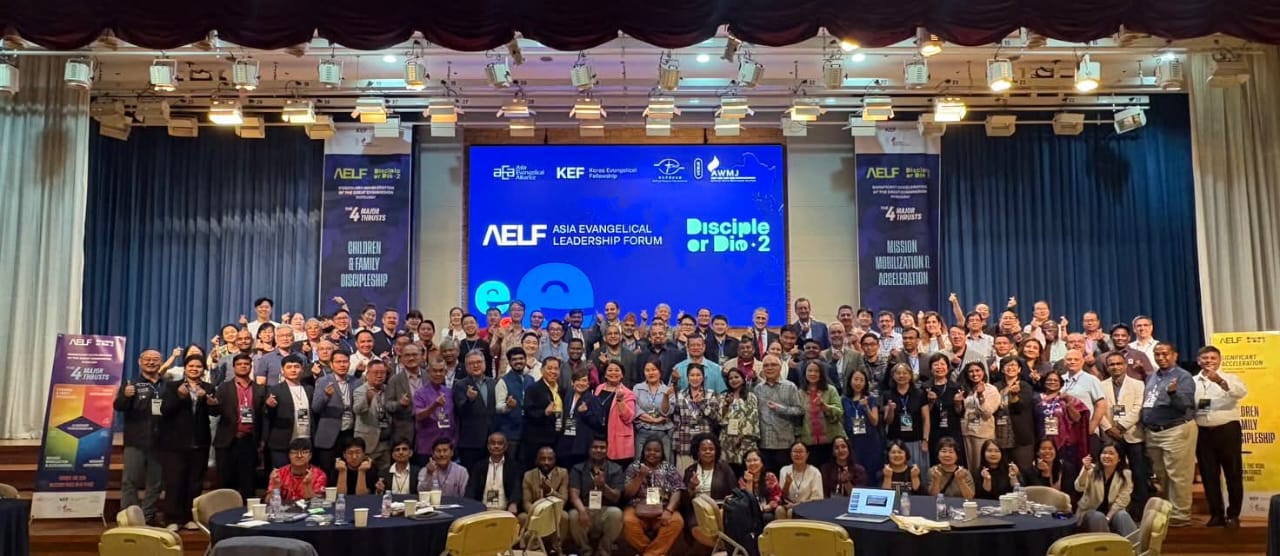By The European Evangelical Alliance
“We need more than just a culture of peace to preserve peace. We need a peace based on faith values.”
No. 2 of the Different Perspectives on Peace in Europe Series

8 May 2020 marks the 75th anniversary of the end of the Second World War in Europe, which was the start into 75 years without war in many European countries. But not for the Balkans. On 10 June 2020 another anniversary is commemorated, the 21st anniversary of the end of the Kosovo War. Aiming to approach the topic of peace in all its complexity and its partly contradictory nature, the European Evangelical Alliance therefore highlights different voices from different corners of Europe on this topic in 2020. As part of our series on different perspectives on the end of the Second World War and on the theme “Peace in Europe”, we met Femi Cakolli, President of the Kosovan Evangelical Alliance, for an interview, in which he answered a few questions on this topic.
What does the average Kosovar associate with the word peace? In the light of the more recent conflicts in the Balkans, in which way can you as the President of the EA Kosovo relate to this year´s celebration of 75 years of Peace in Europe?
For the majority of Kosovars the word peace means the absence of war or conflict. In the Balkans conflicts occur very often, sometimes bigger and sometimes they continue for many years. In the period between 1980, the year in which Josip Broz Tito died, until the end of the Kosovo war in 1999, Kosovo was disrupted by many violent conflicts. So, I grew up in a period of absence of peace and reconciliation. Nevertheless, the end of the Second World War is still very significant for us, as Kosovars. Western Europe experienced an incredibly long period of peace from which we also benefited in the Balkans. It would have never been possible to achieve peace in our region 20 years ago if the rest of Europe would have been involved in other conflicts. So, these 75 years of peace in Western Europe have greatly influenced the Balkans, as well.
How does the Kosovo War still affect the Kosovar population and the work of your National Evangelical Alliance? What hindrances are you experiencing within your alliance?
Many Kosovars still suffer from the consequences of the war. During the war 200,000 houses have been burned, almost 15,000 people have been killed and more than 20,000 women have been raped. The Serbian army and paramilitary groups carved crosses, a national symbol of Serbia, in the bodies of their victims. All of this still greatly affects the ministry of the Evangelical Alliance in our country, in which the population is composed of mainly Albanians and, among others, a small percentage of Serbians. When we share the Good News with the population, people stillassociate Jesus with the Serbians. In their understanding, Jesus, as well as the gospel and the Bible, has something to do with the Serbians. So, we see it as our task to form a new understanding of Jesus and the cross in the minds of our Albanian population. And we’re seeing some fruits. Last year, we held a seminar in our church for about 50 non-believing women, who have been sexually abused. It was the first time that they were confronted with a cross again and we got the chance to explain them the love that God demonstrated for them at the cross. Reconciliation between the Albanians and the Serbians is still a very difficult topic, not just within the country, but also within the church and the members of our alliance. Jesus is calling us to love our enemies, but when I call for prayer for Serbians in my church, people start to cry or ask me to omit it. I already made the proposal to my church to invite a Serbian pastor, but it is a process.
Do you observe tensions between the Evangelical community and minorities or other religious communities in your country? What role does your Evangelical Alliance play to bridge the gap?
The Evangelical community in Kosovo makes up less than 1% of the population, but people are aware that we are actively promoting peace. We’re the smallest religious community, but we have the courage to address the topic of implementing peace in society. Other religious communities talk about peace, but they are not ready to undertake any steps in the implementation. When we celebrated the 200th anniversary of the Evangelical movement among Albanians, we invited leaders of all main religions. Together, we decided to hold regular lunch meetings and to maintain the dialogue. Additionally, we proposed to visit other religious groups. The Serbian Orthodox Church, however, does not respond to our attempts to get in contact with them or to the initiatives that we promote, but they are willing to meet if the Orthodox church or an embassy from a European country is hosting an activity. Additionally, there is a small percentage of Romani people that speak Serbian, which wouldn´t corporate with the Kosovar National Alliance. But in general, Romani people are well integrated and accepted within in the Evangelical community. One Romani church even joined our alliance.
In which way does the recent conflict affect your relationships with other countries and alliances in the region? Have you experienced any changes in the relationship with other Balkan alliances in the last years?
The political relations between Kosovo and the countries Spain, Greece, Cyprus, Slovakia, and Romania are tense, since they have not yet officially recognized the Kosovar independency. Furthermore, there are still political tensions going on between Kosovo and Serbia. And I’m very sad to say that the majority of Evangelicals in the Balkans are siding with that general stream of politics, which also affected the relationships between the respective Evangelical Alliances. But I am very thankful, that the European Evangelical Alliance implemented regular regional meetings for the alliances in the Balkans in 2014. Six years later, the meetings have resulted in improved relationships between the leaders and an increasing mutual support. As I have mentioned before, the Serbian and the Turkish population of Kosovo is still not represented in the Evangelical Alliance, but together with the Turkish Evangelical Alliance we are now reflecting on possible ways to reach our Turkish population. We have already organized a missionary conference together that addressed this topic. Only two months ago, a Serbian pastor showed interest in becoming a member of our alliance. If they will join our alliance, the Kosovar Evangelical Alliance would finally have a member in its rows with a focus on reaching Serbians in Kosovo. And all of this resulted from the regional meetings.
Do you see the possibility of a culture of peace in your country and the surrounding countries? How could an Evangelical Alliance like yours contribute to a culture of peace in society?
I’m optimistic, also for the Balkans, that in the next 10 to 15 years a culture of peace will establish. With the ongoing globalization, we see many cultural changes going on in the Balkans and the rest of the world. But current events and challenges, like COVID-19, leave many people, even in Western Europe, with deep concerns and the question on how to maintain peace in Europe, besides a predominant culture of peace in the majority of European countries. Even the Pax Romana came to an end after preserving peace in the Roman empire for over 200 years. So, I hope the culture in the Balkans is going to change, but I think, we need to see more than that. Many Europeans are leaving their Christian faith and their values behind, which leaves me and the churches in the Balkans wondering, how the future of Europe will look like. In my opinion, we need more than just a culture of peace to preserve peace in Europe. We need a peace based on faith values. That would make a much better foundation to peacemaking and peacekeeping.
Coming from your experiences, what would you want to tell other European national alliances concerning the topic peace?
Brothers, if we want to make peace and promote reconciliation in our society, we need to be strong. Not just economically, but also spiritually. Furthermore, I think, we shouldn´t see peace as a good that is provided for by our institutions, but Europeans should engage personally into peacemaking. In my observation, peacemaking is a process and people seem to be waiting for the institutions to make it happen and are not taking the initiative themselves. And lastly, when it comes to peacemaking and reconciliation, I would recommend following the subsequent four principles in the given order: “Know right!”, “Think right!”, “Act right!”, and “Feel right!”. Most of the people start with feeling right, and then act right, think right and, in the end, know right. But I think, we can derive from Scripture that peacemaking does not start with a feeling.]]>





Stay Connected